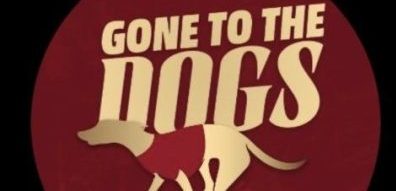1993 Wimbledon H2 grader Gis A Smile breaks the 460 metre hurdle track record when recording 27.99. Trainer Philip Rees faces a stewards enquiry due to the dog’s previous best time of 28.81.
1969 Nobody noticed anything unusual about Walthamstow grader Snow Maiden until a kennelhand dropped some feeding bowls. While the other runners jumped up and began barking, Snow Maiden slept through the lot. Tests confirmed that Maiden was infact, totally deaf.
1932 A Wimbledon match race between local star Lavaka and Wembley runner Lights Of London is inconclusive – they dead heat.
1979 In an attempt to get the top track stars back early from their winter break, Dublin bookmakers announce they are to sponsor two new ‘Championship’ races, one at each of the capital’s two tracks, and worth £Ir3,000 to the winner. It works, with stars such as Yellow Band, Red Rasper, Ballydonnell Sam and Sweeping Bally all making the finals, both of which go to Northern Irish star Tough Decision (Minnesota Miller-Carters Drain). Tommy Kane’s brindle clock’s 29.68 in the Shelbourne decider and 29.70 at Harolds Cross.
1949 Following a series of complaints from the UK and the warning off of several Irish breeders, the ICC introduces a new identification form for puppies.
2013 Coventry introduce live internet streaming.
1981 It is a bad month for puppy thefts with eleven pups stolen from five different locations within the space of a fortnight.
1948 The brilliant bitch Sheevaun (Bellas Prince-Honey Gale) dominated the first major event of the year, the Longcross Cup. She won her 550 yard qualifier by 12 lengths in 31.19, a full second quicker than the other heat winner. She went to traps at 4-7f for the final which she won by eight lengths in 31.29. Though she was lightly raced during the year, she reached the Scottish and English Derby finals. Paddy Fortune’s fawn was beaten in both (odds on at Carntyne) but recorded the fastest time ever by a bitch when winning his White City Derby semi final in 28.74.
1987 Attached trainers: Hall Green: Barry Bakewell, Bertie Gaynor, Pat Goode, Paddy Hancox, John Malcolm, Leo Pugh
1979 Perry Barr boss Paul Czardybon faces an NGRC enquiry after the track allowed Blazing Ship to contest a £200 open race final at the track. Ship had finished fourth in his semi final but had been promoted to the final following the disqualification for fighting of Northway Run. That switch had defied rule 91, introduced 11 years earlier following the uproar after the Duke Of Edinburgh’s Camira Flash had been promoted to the English Derby final following the disqualification of Not Flashing for fighting. Thankfully, unlike the royal runner, Blazing Ship was well beaten in the final.
2012 Trainer Jane Houfton is fined £2,500 with £7,500 costs following three incidents of greyhounds vomiting in the racing kennels at Nottingham. Mrs Houfton protests her innocence throughout. Following the incident, the Dunham team join Doncaster.
1965 Ulster Cesarewitch winner My Parachute and Irish Puppy Derby winner Captain Ted (formerly Wonder Guest) are among the 100 plus lots due on the bench at Aldridges Sale.
1957 Track runners from Wembley and Gloucester beat coursing dog in two major coursing stakes at the South Of England meeting at Druids Lodge.
1993 Perry Barr announce plans to introduce hurdle racing. Wembley promise to bring back graded hurdle racing after a break of ten years.
1977 GRA sell its 32% share in Walthamstow Stadium back to the Chandler family.
1971 Bookmaker Billy Mahon makes Crefogue Flash the 12-1 ante post favourite for the English Derby. Irish runner Jemmy John is next at 16s followed on 20-1 by Irish Airport, Mad Carry, Nijinsky and Super (Supreme) Fun.
1947 Figures reveal that 1946 will be the best year ever to be a track promoter. Around £200m was bet on Britain’s 80 NGRC tracks with the promoters keeping a deduction of £12m – roughly equal to £425m at today’s values. Within a year, the Government will introduce a 10% tote tax and turnover falls by half.
1969 Exchange Telegraph, the agency who supply SP returns to the betting shops have stopped transmitting results until after six races have taken place at each London evening meeting for a three month trial period. The plan, first introduced at Walthamstow, and adopted at Harringay was to restrict off-course betting on evening race meetings. ET staff had previously threatened to boycott any track operating the delay.
1979 John Honeysett’s British bred marathon star Welsh Cobbler (Sallys Cobbler-Tough Jackie) goes to traps six times during the month of January and wins five times including heats and final of the Keep Moving Marathon. Total distance covered, 5,213 metres.













